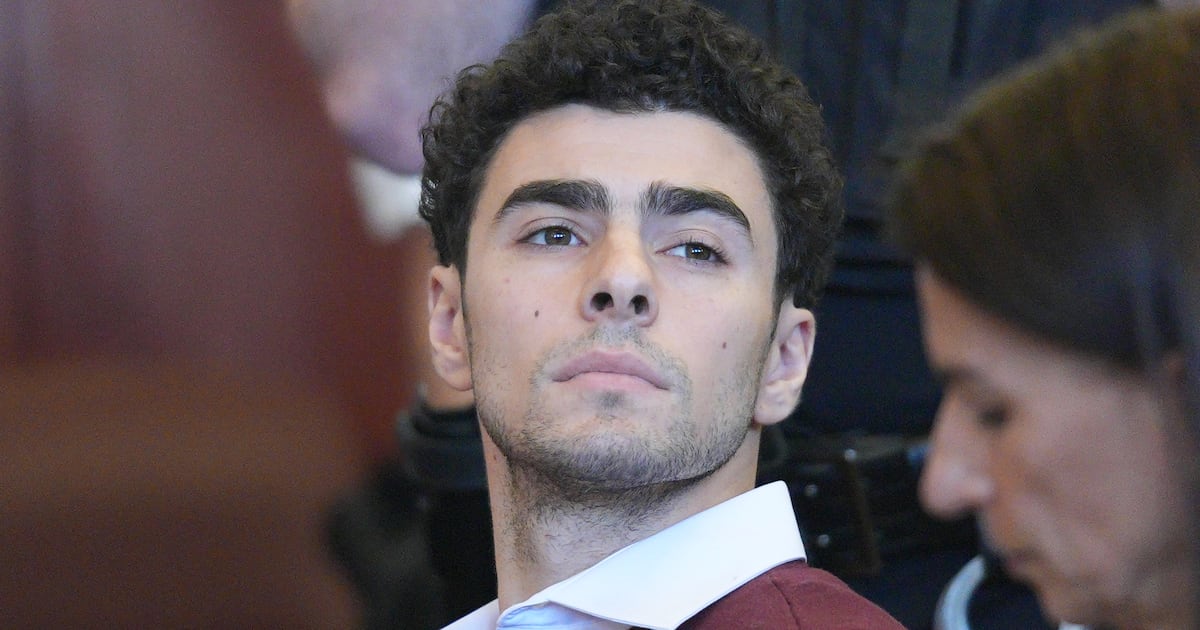Few details have emerged about the identity of a 26-year-old American woman now at the center of an apparent terrorist trading plea by the Islamic State (also known as the “caliphate,” ISIS, or ISIL). According to press reports, the unnamed woman, who was kidnapped a year ago, was working at a hospital in Aleppo when armed gunmen captured her, apparently because of her American passport.
On Tuesday, the terrorist group offered her freedom in exchange for $6.6 million and the release of Aafia Siddiqui, a Pakistani neuroscientist with ties to al Qaeda, who is serving an 86-year prison term in the mental health unit at the federal prison in Fort Worth, Texas.
According to an email published by the Global Post, similar demands were made in exchange for James Foley, the American journalist whose gruesome beheading by the same jihadist group last week has become symbolic of the group’s malicious intent. “You were given many chances to negotiate the release of your people via cash transactions as other governments have accepted,” the email reads. “We have also offered prisoner exchanges to free the Muslims currently in your detention like our sister Dr. Afia Sidiqqi [sic] however you proved very quickly to us that this is NOT what you are interested in. You have no motivation to deal with the Muslims except with the language of force, a language you were given in ‘Arabic translation’ when you attempted to occupy the land of Iraq!”
According to The Daily Beast foreign editor Christopher Dickey’s 2009 book Securing the City, Siddiqui, 42, is well-known to American authorities. She studied biology at the University of Houston and MIT before getting a doctorate in neuroscience at Brandeis University in Waltham, Massachusetts. During her studies in the 1990s, she raised funds for Islamic victims in Bosnia, handing out copies of the Quran and running an NGO known as the Islamic Research and Teaching group out of her family’s home.
She apparently caught the attention of Ali Abd al-Azziz Ali, known as Ammar al-Baluchi, who was rising in the ranks as an al Qaeda functionary and who saw the “extraordinarily well-educated Siddiqui” as an asset, according to Dickey’s book. Not only was she the daughter of a prominent Pakistani female parliamentarian, she was also well-connected in political-religious circles, which would prove ultimately useful for al Qaeda’s purposes. “U.S. officials eventually said they feared that Siddiqui’s scientific background would give her the expertise to help Al Qaeda build biological or chemical weapons,” Dickey writes, nothing that she got her start in the organization by doing mundane trust-building odd jobs like setting up a decoy post office box in the name of Majid Khan, who became an important al Qaeda operative.
In 2002, Siddiqui returned to Pakistan and divorced her husband, Muhammad Amjad Khan, who was also being investigated for terrorism, just as American authorities grew suspicious of the pair—questioning them at least once for suspect online purchases, which reportedly included $10,000 worth of night-vision equipment, body armor and military manuals such as The Anarchist’s Arsenal. She later married Al-Baluchi and apparently lived up to al Qaeda’s expectations as their chief chemical weapons specialist.
In 2008, she was caught in Afghanistan, apparently turning a rifle on American operatives who tried to interrogate her after finding bomb-making instructions, chemical weapons and briefing notes about potential attacks on American landmarks.
She was extradited to the United States to face criminal charges in New York. She was found guilty of seven counts of attempted murder, armed assault, using a firearm and assaulting American officers in 2010 in a two-week trial. Her imprisonment has won her sympathies in Pakistan, where she is seen as a heroine, garnering support on social media, where her supposed unjust incarceration has drawn more than 100,000 signatures in an online petition on the Free Aafia website and the Peace and Justice Foundation site, which runs a 1991 clip of the young doctor addressing a group on women’s rights in Islam.
In 2009, Siddiqui’s estranged first husband told a Pakistani newspaper that he wasn’t surprised his wife was a terrorist. “I was aware of Aafia’s violent personality and extremist views and suspected her involvement in jihadi activities,” he told the paper. “I also found it very odd that on the one hand Aafia insisted on leaving the U.S. after September 11, 2001, claiming the country was unsafe for us and our children because the U.S. government was abducting Muslim children, and on the other hand took the risk of travelling to that country again without fearing that she may be captured and may never see our children again.”
According to excerpts from a letter from Siddiqui’s family published by ABC News, Siddiqui’s family wants her freedom, but not as part of a terrorist trade-off. “If the issue is true, we would like to state that our family does not have any connections to such groups or actions,” the letter reads. “We believe in a struggle that is peaceful and dignified. Associating Aafia’s name with acts of violence is against everything we are struggling for. While we deeply appreciate the sincere feelings of those who, like us, wish to see the freedom of our beloved Aafia, we cannot agree with a ‘by any means necessary’ approach to Aafia’s freedom. Nor can we accept that someone else’s daughter or sister suffer like Aafia is suffering.”






